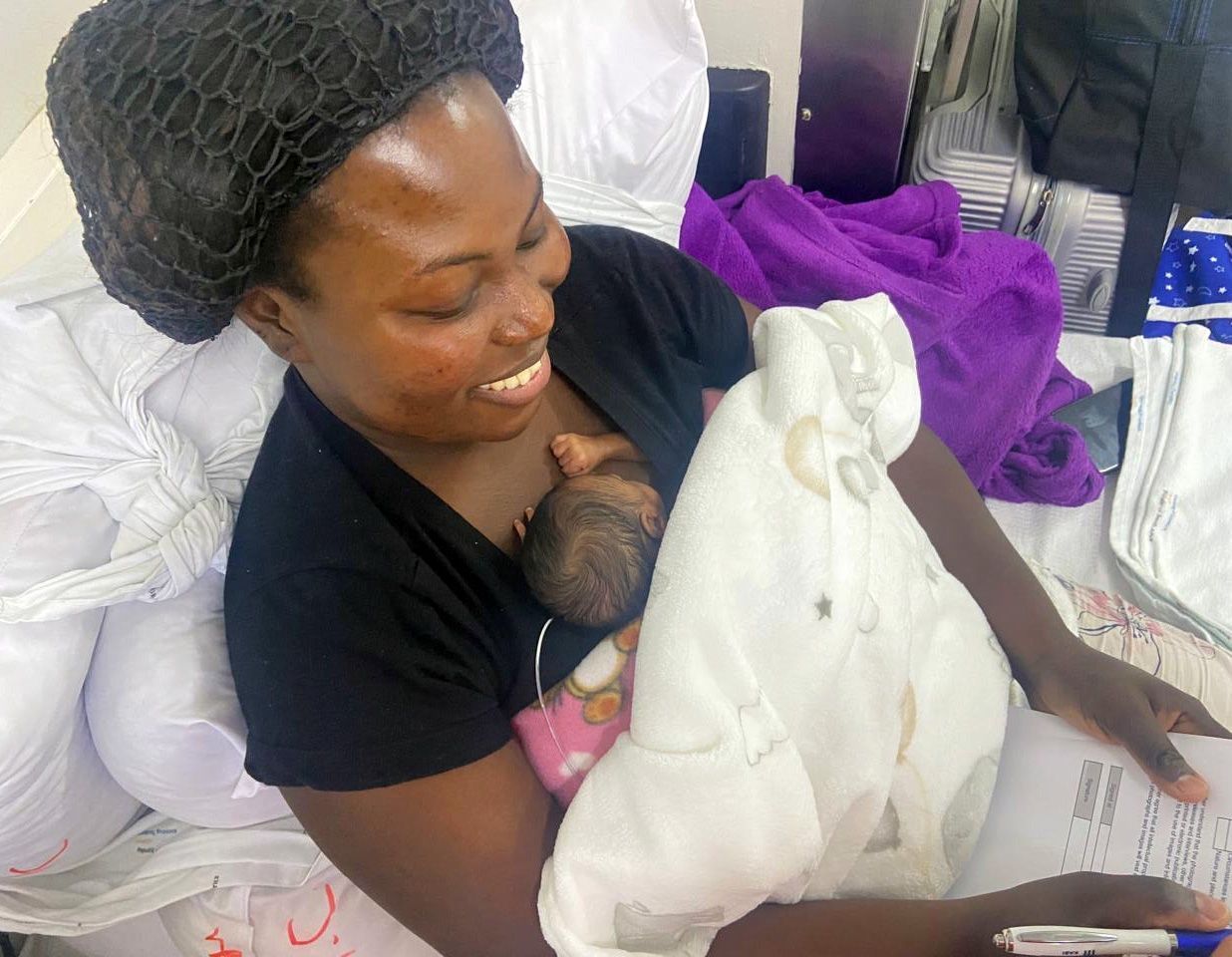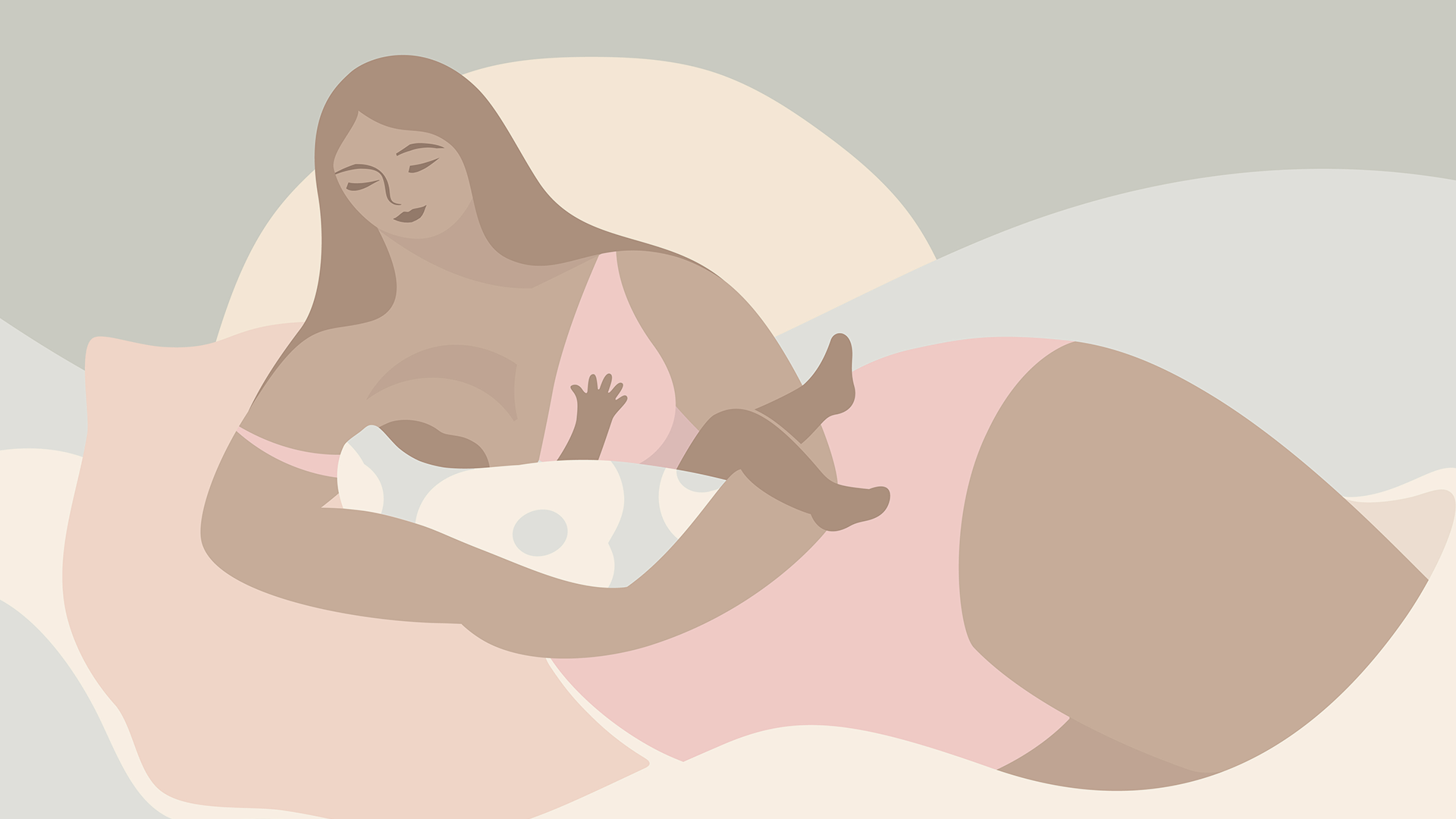From one mother to another
Breastmilk donation – a priceless gift
To give cuddles, care and plenty of nourishment – the most natural expectations of a mother are not always possible when her new baby needs hospitalisation, but breastfeeding women have an opportunity to help the newborns of other mothers with vital nutrition.
Nyasha Mhuru Rukure is one such parent-in-need. Her baby boy Liam was born last month at just 29 weeks old and was admitted for intensive care at the Rahima Moosa Mother and Child Hospital. For Nyasha, the journey to the hospital is a hurdle that she often cannot overcome meaning that Liam’s urgent need for breastmilk must be met another way.
It is here that the new human milk bank at the facility, established in partnership with Netcare, makes an immeasurable difference in the life of Liam and many other tiny patients like him, says Verena Bolton, a neonatal nurse and national coordinator of Netcare Ncelisa human milk banks.

Ivy Nyarkoah, here with her daughter Bregail, is paying it forward despite tragically losing Bregail’s twin brother, and is donating her excess breastmilk after an extremely premature birth experience, following which the babies received donor breastmilk for the first few days of life.
“Breast milk donors who have been tested for safe donation are a lifeline for babies admitted in hospital neo-natal intensive care units (NICUs), helping to ensure that they receive the specialised nutrition their bodies need – often in a fight for their life,” she says.
Qudsiyah Kassim, a registered dietician who manages newborn nutrition in the hospital’s NICU adds that breastmilk is crucial in preventing infections and other complications but many mothers in the public sector struggle with the logistical and financial difficulties preventing them from seeing and feeding their little one every day.
“While Netcare has historically supported public sector facilities with donated breast milk from the five national Netcare Ncelisa human milk banks, the establishment of an on-site milk bank is an important step for the Rahima Moosa Mother and Child Hospital. This will allow them to recruit donors directly at the facility and manage the processing, in partnership with Netcare,” explains Bolton.
Paying it forward
In the spirit of paying it forward, Ivy Nyarkoah is donating her breastmilk to the human milk bank at Rahima Moosa Mother and Child Hospital while her baby girl, Bregail – who weighed just 820g at the time of her birth – is admitted there.
Ivy, a first time mother, endured heartbreak shortly after giving birth to extremely premature twins at 28 weeks – a boy and a girl. Her son tragically did not survive but despite the ongoing pain of his loss, she is determined to make a difference in the lives of other babies by donating breast milk, as much as she is able to.
“When my babies were born they desperately needed the right nutrition and while we waited for my milk to come in they received donor breast milk – a gift which I am really grateful for. This experience has encouraged me to donate and having the milk bank here at the hospital means I am able to do it easily.
“Bregail is incredibly strong, she weighs 1.3kg and it seems like she may be coming home with us any day now. I plan to continue donating milk even after that and dropping it off every two weeks. After all, if others are willing to donate then why not me?” she concludes.
For more information about applying to donate breast milk directly to Rahima Moosa Mother and Child Hospital please contact the dietitian’s department on 011 470 9245.
To apply to donate breastmilk to one of the five Ncelisa milk banks at Netcare hospitals around the country, please visit the Netcare website or visit 086 143 5787.













